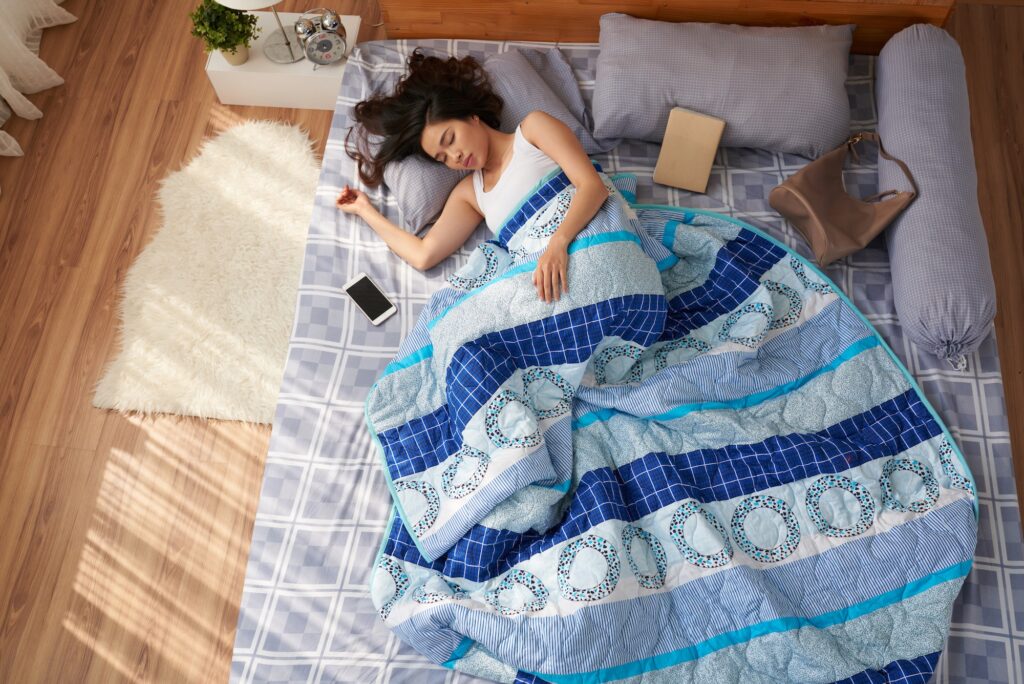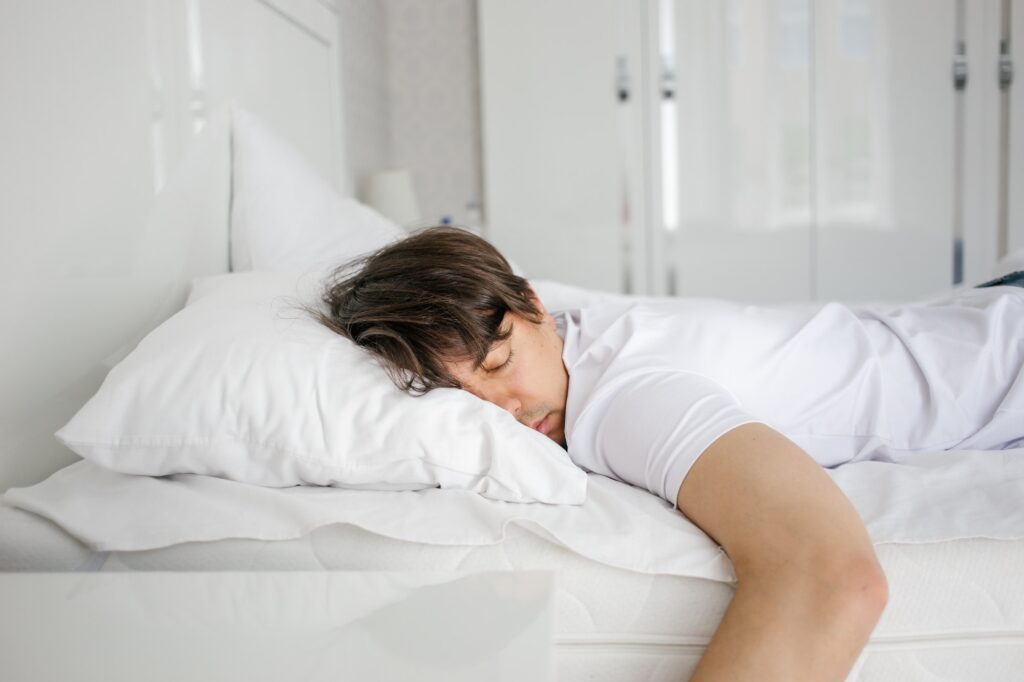I’m pretty sure you’re aware that not getting enough sleep at night isn’t good for you. I did. I’m almost positive you don’t know just how truly detrimental not getting enough sleep is though. I sure didn’t! As if feeling tired every day isn’t bad enough, it turns out a lack of sleep negatively affects the health of your brain and body in multiple ways.

What happens when you don’t get enough sleep?
While looking into some ideas on how to improve the quality and quantity of sleep in my own life, I came across some alarming information. So alarming in fact, I’m changing some bad habits and trying some new ideas to help me sleep tonight!
The average adult should get at least 6-8 hours of sleep at night for optimal health. Most of us are not getting enough sleep though, due to a variety of different factors such as stress, health issues, inactivity, or just plain bad habits. Every night that you are not getting enough sleep, you are creating a sleep debt you can never truly make up for.
In addition to this sleep debt, your body, and brain are not able to…
- Properly remove the buildup of toxins created throughout the day.
- Combine information learned while you’re awake with old information in your brain to create new information.
- Save memories. It turns out sleep allows the save button in your brain to work correctly and store memories. A lack of sleep shuts down memories and can lead to a cognitive memory decline which researchers are linking to Alzheimer’s.
Not getting enough sleep has also been linked to…
- Decreased self-control, problem-solving abilities, testosterone (which ages you by 10 years!), immune system response, and metabolism.
- An increase in mental health issues such as depression, insulin (which can put you at a risk for pre-diabetes), whole-body inflammation, and risk for tumor growth
- Becoming more accident-prone, hungrier as more hunger hormone is released in your body, and at greater risk for cardiovascular problems such as heart attacks.
So, what can you do to make sure you are getting that 6-8 hours of sleep a night so that you can be at your own personal best? I’ve got some sleep hygiene tips for you. Yes, sleep hygiene. This was a new term for me, but it means instilling a healthy sleep lifestyle that ensures you are getting enough sleep for your body and mind.

New Habits Don’t Always Come Easy… Have Patience!
Keep in mind, it takes time to create new habits (about 30 days of consistency), and change is hard, so go easy on yourself. Just remember how much better you’ll start feeling once you are consistently getting enough sleep with your new sleep routine. Here’s what the experts suggest.
- Go to bed at the same time every night, and arise at the same time every morning. A consistent schedule is the key to sleep.
- No electronics, including T.V. watching, 30 minutes to an hour or more before bed. The blue light from these devices activates alertness in the brain.
- If you must use your device, at least try using the night settings, and do not check social media, work emails, news, or anything else that will trigger negative emotions.
- Put your devices on Do Not Disturb mode before settling in for the night.
- Do not use your bed for anything except sleeping and intimacy. You want to associate your bed with calm, not alertness.
- Avoid alcohol, caffeine, or eating heavy, rich, fatty foods before bed. Alcohol disrupts the quality of sleep, caffeine will keep you awake, and eating late can cause heartburn.
- Make exercise a part of your daily routine. There are so many benefits to a regular exercise routine, and increased sleep is just one of them.
- Create a wind-down routine before bed such as reading a book, taking a bath, meditation, gratitude journal, etc. Anything that will calm your body and mind to induce relaxation and sleep.
- Your sleep environment should be as dark, cool, and quiet as possible. Try using earplugs, a night mask, turning the heat down, or using a fan.
- If you’re having trouble sleeping, get up and drink a warm glass of milk, or do something you find boring. Both have been proven to make you feel sleepy.
- Limit naps to less than 30 minutes. Any more can disrupt nighttime sleeping.

Now Go Sleep Like a Baby!
I’m hoping working on your sleep hygiene will get you closer and closer to the optimal 6-8 hours of sleep your body and brain need each night to work at their highest efficiency. Good luck and sweet dreams!
For more information on just how important getting enough sleep is, check out our article on 5 Easy Ways to Boost Your Immune System where we look at how not getting the proper amount of rest every day affects your Immune System.







7 Responses